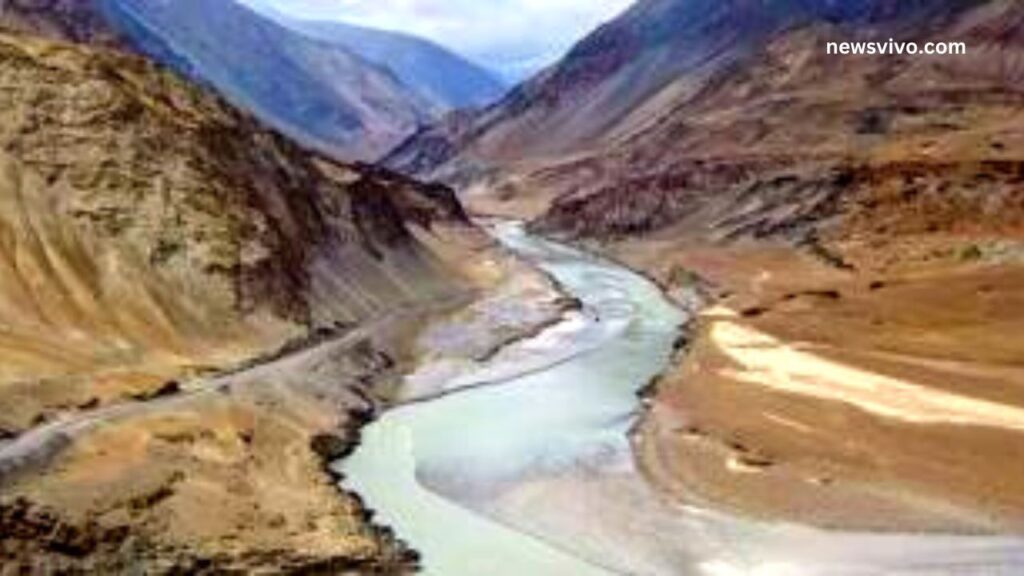The World Bank has started two separate, concurrent actions in response to Pakistan’s objections to India’s Kishenganga and Ratle projects in Jammu and Kashmir.

However, the Treaty does not contain such a clause.According to official sources, New Delhi has notified Islamabad that it wants to amend the more than 60-year-old Indus Waters Treaty (IWT) due to Pakistan’s “intransigence” in carrying it out (January 27).
The Notice (Indus Waters Treaty)
Based on the sources, the notification, which was delivered on January 25 via the Indus Waters Commissioner, will kick off the process of amending the treaty.
The goal of the notice for amendment, according to them, was to provide Pakistan the opportunity to engage in international talks within 90 days to resolve the major IWT infringement. “This method would also update the IWT to take into account the lessons learned over the last 62 years,” a source said.
India has notified Pakistan in compliance with IWT Article XII(3). This section states, “The provisions of this Treaty may be changed from time to time by a treaty agreed upon and officially accepted by the two Governments.”
What is the Indus Waters Treaty?
After nine years of discussions between India and Pakistan that were mediated by the World Bank, the IWT was finally signed on September 19, 1960 in Karachi by Prime Minister Jawaharlal Nehru and President Mohammed Ayub Khan of Pakistan.
The agreement for the six rivers of the Indus basin that pass through both India and Pakistan is outlined in the treaty. It has 8 Annexures and 12 Articles (from A to H).According to the terms of the agreement, Pakistan must get water from the “Western Rivers” (Indus, Jhelum, and Chenab), while India is allowed “unrestricted usage” of all the water from the “Eastern Rivers” (Sutlej, Beas, and Ravi).
The Dispute (Indus Waters Treaty)
India is building two hydroelectric power projects (HEPs): the Ratle HEP on the Chenab and the Kishenganga HEP on the Kishenganga, a tributary of the Jhelum. In opposition to these schemes is Pakistan.
Sources claim that Pakistan requested the appointment of a Neutral Expert in 2015 to look into its technical issues to the Kishenganga and Ratle HEPs. However, Pakistan unilaterally withdrew this motion the next year and suggested that a Court of Arbitration rule on its concerns.According to sources, Pakistan’s unilateral move is in violation of the graduated dispute resolution procedure envisioned by Article IX of the IWT. India subsequently asked for the issue to be referred to a Neutral Expert in a separate request.
The World Bank has started taking action on both the Neutral Expert and Court of Arbitration processes at Pakistan’s continued request. But according to the sources, no IWT clause addresses such concurrent evaluation of the same problems.
The World Bank designated Michel Lino as the Neutral Expert and Prof. Sean Murphy as the Chairman of the Court of Arbitration in October of last year. The Bank stated in a statement on October 17, 2022, “They shall carry out their tasks in their individual capacity as subject matter experts and independently of whatever other positions they may currently have.”
Kishenganga Hydroelectric Project 9(Indus Waters Treaty)
The Kishenganga project is situated in the Bandipora district of the Union Territory of Jammu & Kashmir in the hamlet of Kralpora on the Kishenganga River. The project’s location is around 370 kilometres from Jammu and 70 km from Srinagar. In May 2018, Prime Minister Narendra Modi opened the project.
A horseshoe- or circular-shaped “concrete face rock-fill dam” with a height of 37 m is part of the project. Three 110 MW generating units make up the run-of-the-river system, which has a 330 MW total capacity. A 23.25-kilometer Head Race Tunnel directs river water to the subterranean power plant, where it is used to produce 1,713 million units of energy annually.
In addition to J&K, the initiative would help the states of Chhattisgarh and Uttar Pradesh, according to a formal announcement made in 2018. According to the release, “Kishengana HE Project would deliver a free electricity of 13% to the state (erstwhile J&K), which will be roughly Rs 133 crore per year.”
Ratle Hydroelectric Project (Indus Waters Treaty)
The project is being planned on the Chenab River in the Jammu and Kashmir province’s Kishtwar district, 140 kilometres from Udhampur and 201 kilometres from Jammu. It is a run-of-the-river project with a concrete dam that is 133 metres high.
The 850 MW project will feature five generating units, four of which will be 205 MW each and one of which will be 30 MW. The project can produce 3,136.76 million units of electricity per year once it is fully operational. The estimated project cost is Rs 5,281.94 crore (November 2018 prices).
A new joint venture company (JVC) with equity contributions of 51% and 49% from NHPC and Jammu & Kashmir State Power Development Corporation Ltd (JKSPDC) would be established to carry out the project.